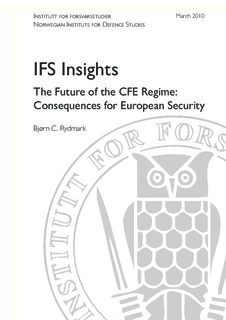| dc.contributor.author | Rydmark, Bjørn C. | |
| dc.date.accessioned | 2011-02-21T09:04:29Z | |
| dc.date.available | 2011-02-21T09:04:29Z | |
| dc.date.issued | 2010 | |
| dc.identifier.uri | http://hdl.handle.net/11250/99281 | |
| dc.description | The article offers observations on the background and motivation for the Russian suspension. While the Soviet Union had a strong interest in the CFE Treaty in the late 1980s, in comparison, Russia has significantly less to gain from participating in the Treaty today. This is based primarily on the impact that geopolitical changes in Europe has had on Russia’s strategic and national security interests since the end of the Cold War. It is unlikely that the CFE Treaty can make a significant contribution to European security without Russia’s participation. Among the possible long-term implications of the Russian suspension is reduced military transparency as well as reduced emphasis on conventional arms control in Europe. | en_US |
| dc.language.iso | eng | en_US |
| dc.publisher | Norwegian Institute for Defence Studies | en_US |
| dc.relation.ispartofseries | IFS Insights;2 | |
| dc.subject | Europa | en_US |
| dc.subject | Sikkerhetspolitikk | en_US |
| dc.subject | Russland | en_US |
| dc.title | The Future of the CFE Regime: Consequences for European Security | en_US |
| dc.type | Others | en_US |
| dc.source.pagenumber | 24 | en_US |
